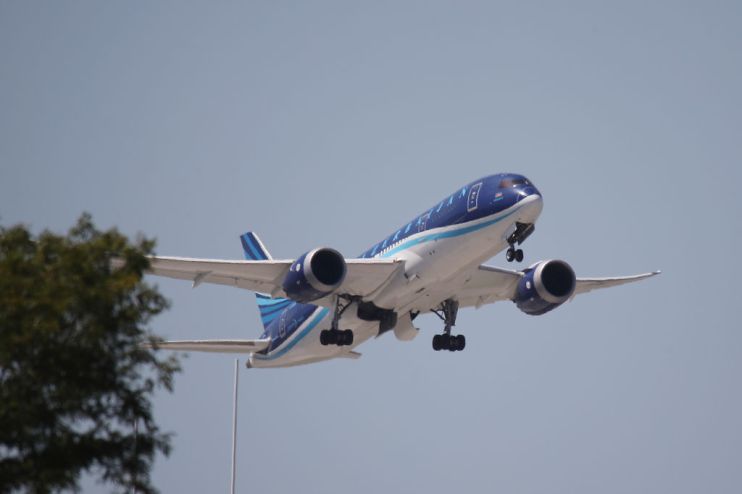Government policy must change if travel companies are to survive the Covid-19 pandemic

The government’s announcement on 25 July of a quarantine for anyone returning from Spain torpedoed the nascent recovery of the travel industry. Bookings immediately dried up.
Since then it’s gone from bad to worse. This week, the government removed Turkey, Poland, and Bonaire, St Eustatius and Saba from its Travel Corridor list, meaning that travellers from those destinations must now self-isolate on arrival.
Consistent only in its inconsistency, the government’s contradictory and seemingly arbitrary decrees on where is and where isn’t safe to travel has thrown a veil of uncertainty over the nation’s holiday plans, with catastrophic consequences for the travel sector.
Read more: The government must adopt airport testing to help rebuild the economy
The government’s blanket ban on Spain, as pointed out by many commentators at the time, is a case in point. Both the Canary Islands and the Balearics cases per 100,000 were lower than the UK’s when the Spanish quarantine was announced. The cases per 100,000 in the Canaries (55) are still lower than the UK (72), yet the travel ban, advising against all but essential travel, persists.
For hard-hit Northern cities, such as Bolton (198), Liverpool (154) and Manchester (144), escaping to Tenerife for some Winter Sun would ironically actually prove an effective “circuit break”, to use the government’s newest phrasing. Government policy here, as in so many other places, seems more about being seen to do something, rather than nothing at all.
The travel sector — and the many thousands of jobs it supports — will remain badly exposed without a more coordinated approach from the government.
When the air corridors allowing quarantine-free travel were announced in early July, in good faith the travel industry started selling summer holidays. Unfortunately, the government clearly doesn’t understand the financial repercussions that decisions such as the re-imposition of quarantine have on the sector, particularly tour operators offering travel packages.
This reversal of quarantine policy has not caused low cost airlines such as Easyjet and Ryanair to cancel their flights. Why would they? With peak season load factors, and no obligation to refund customers, they’re happy to fly empty planes. However, if your flight was purchased with accommodation as part of a package, you are entitled to a full refund from your travel company. This is great for consumers but bad for travel companies who incur the cost of the non-refundable flight.
In this context, it becomes clear why the country’s third and fourth biggest ATOL holders, On the Beach and Love Holidays, have reinterpreted the Package Travel Regulations and are refusing to refund their customers, quitting the industry body ABTA at the same time.
Although I have some sympathy for the predicament in which these two companies find themselves, this is ultimately a business decision: On the Beach is governed by its share price, and Love Holidays was left with a balance sheet full of debt by Livingbridge, its new private equity owners, leaving little room for manoeuvre.
There are three main reasons people buy a package holiday, rather than buying the components separately: One, ease of booking everything in one place. Two, price. And three, financial protection offered in buying a package.
A new breed of travel company — of which On the Beach and Love Holidays are the most preeminent examples — has disrupted the market, using technology to drive high volume which, coupled with razor-thin margins, has allowed them to win on the first two criteria listed above. They’ve obviously concluded customers have short memories and will forget that they had previously promised to deliver on the third.
Our approach as a family-run holiday business is necessarily different. A 60 per cent rate of repeat business demands a different relationship with our customers, meaning we are refunding cancelled bookings within 14 days. Financial protection is a vital part of our customer proposition. However, we believe this is also the correct approach from an industry-wide perspective: we want to encourage bookings this September and into the New Year, the period where we Brits are normally looking to book holidays. But they will only do this if they know they can get their money back without question.
The government must act now and take its responsibilities to international travel and its supporting industries seriously. A lazy and unfocused quarantine policy is as detrimental to inbound tourism as outbound: one of the reasons London is so empty is because there are no tourists. With 10 per cent occupancy levels, London hotels are on their knees. A government commitment to investing in a robust airport testing regime is the only way to avoid the wholesale destruction of a vital part of our country’s economy and infrastructure. Secondly, the foreign office needs to return to region-specific travel advice, instead of country-wide blanket bans.
There isn’t much time to act. Our industry desperately needs changes in policy which will allow it to survive. On a wider level, tourism accounts for almost 10 per cent of GDP, but its impact is amplified through the economy, impacting far beyond levels of direct spend. To think the economy can survive a continued moratorium on international travel is a dangerous miscalculation.
Main image credit: Getty